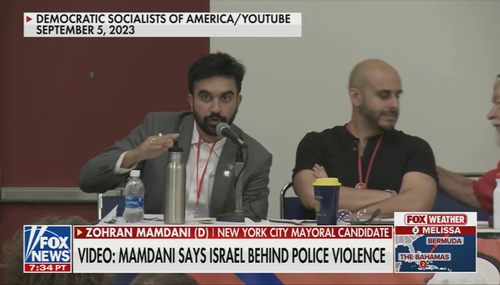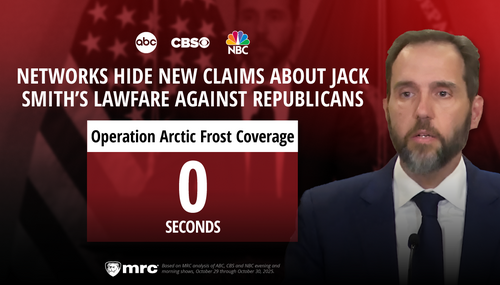 PBS talk show host and liberal political commentator Tavis Smiley penned an op-ed in USA Today on Friday taking issue with “conventional wisdom” that Hillary Clinton had the black vote on lockdown, despite her many victories on Super Tuesday. "Blacks could still hire Trump" was the provocative headline in the paper.
PBS talk show host and liberal political commentator Tavis Smiley penned an op-ed in USA Today on Friday taking issue with “conventional wisdom” that Hillary Clinton had the black vote on lockdown, despite her many victories on Super Tuesday. "Blacks could still hire Trump" was the provocative headline in the paper.
Smiley cautioned that even though Clinton has received some pretty big endorsements from the Congressional Black Caucus, big city black mayors and other well-known black elected officials, the Clinton camp shouldn’t take it for granted – especially after how the Clintons went after Obama in the 2008 election. He writes:
Nonetheless, the conventional wisdom is that black voters have forgiven the Clintons for their attempt to diminish Obama's 2008 presidential campaign, and this time around, they’ve got Hillary’s back. Except everyone knows that in this presidential election cycle, conventional wisdom left the building long before the train ever left the station. Something tells me that if Donald Trump is indeed the Republican nominee, it might be a miscalculation for Democrats to take for granted that black voters are a lock for their nominee, even with the first black president and Barack Obama both campaigning for her.
Smiley noted that the charm and charisma of Obama “aren’t transferable” to Clinton (I’m sure everyone would agree there), but that even the election of the first female president wouldn’t live up to the hype of electing the first black president!
While the chance to elect the first woman president is indeed tantalizing for many, in black America specifically, it’s not exactly the same as watching an African-American first family taking up residence at 1600 Pennsylvania Ave. Indeed, even women haven’t as yet rallied en masse around Hillary the way black folk did around Obama.
Smiley admitted that while he and Trump have had their run-ins and differences on immigration and Muslim issues, some in the black community he’s spoken with do not necessarily agree with him, nor find Trump’s comments disqualifying. Continuing on the issue of race, he writes:
Though it is true that black/brown political coalitions have had strategic successes, it is also true that there have been plenty of other occasions where the interests of black and brown voters didn’t exactly align. In California where I live, Latinos are still smarting from the lack of black voter support in 1994 to help defeat the anti-immigrant Proposition 187. At best, it’s a big assumption to think that both the black political establishment and everyday black voters share the same sentiment on Trump’s anti-immigrant stance. Scary, but honestly, I’m not so sure.
What’s more interesting is the fact that Smiley finds how telling it is over the almost complete silence from black elites, with few exceptions:
Those who travel in social circles with Trump, even as he has been taken to task time and again for his racial if not racist language…Recently, I read a national newspaper feature about Trump and his relationships with notable high-profile black Americans. Interestingly, nobody really wanted to go on record criticizing The Donald…I’ve talked privately to some of Trump’s black friends since I read that piece, and to a person, their critique of him is highly nuanced. Men and women from black America's most privileged class, either genuinely like this guy or they’re afraid of being caught in his social media meat grinder. Those whose job it is to comment on politics have been strong in condemning Trump, but those who earn their wealth elsewhere have been too quiet. In any event, it’s going to be interesting to watch how these BFOTs (black friends of Trump) support the Democratic nominee even as they try to remain neutral on Trump.
Smiley concluded "it’s mind-numbing to some of us that a reckless member of the billionaire class has somehow convinced hardworking, everyday people that he is their savior," which is ironic, because this is the same thing many were asking themselves when Senator Obama the million-selling author was elected. Although Obama wasn’t a billionaire, he was certainly far from the “working-class” ranking he pretended to give himself.
Smiley concludes that he wouldn’t find it all that hard to believe if Trump were to make a serious play for black votes, and in a close election, any black votes he gets in a close race could make all the difference.




